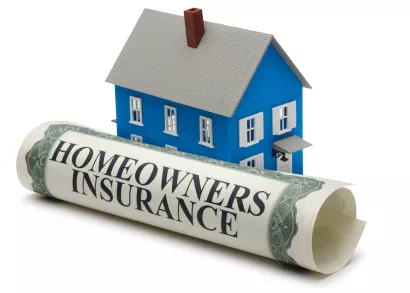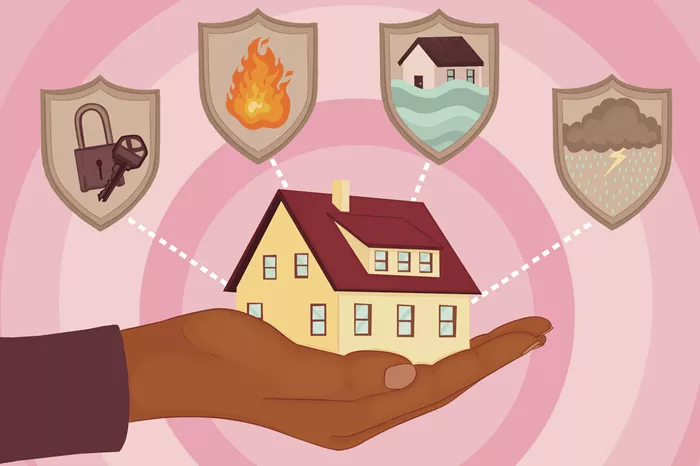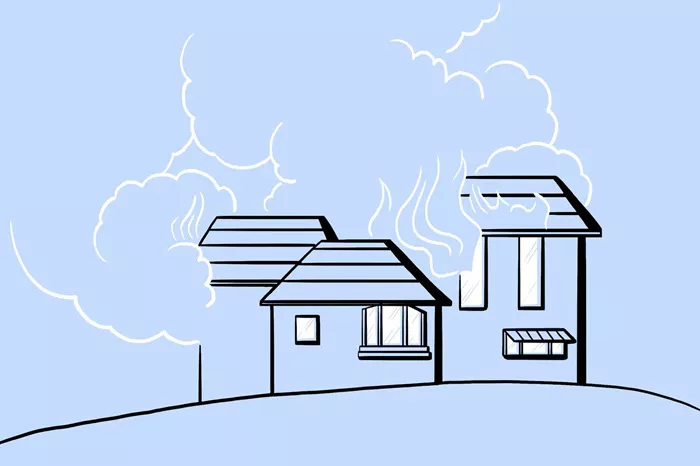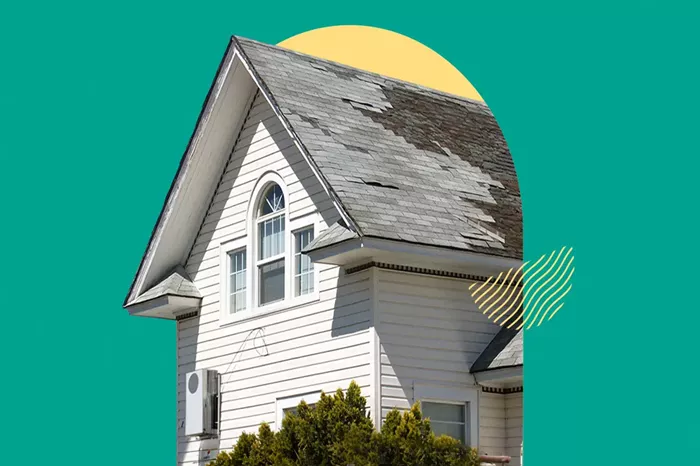Owning a home is a significant milestone, but it also comes with responsibilities, one of which is securing the right insurance. Homeowners need various types of insurance to protect their investment and ensure financial security. This article will explore the essential insurance policies every homeowner should consider, their benefits, and how to choose the right coverage for your needs.
Understanding Homeowners Insurance
What is Homeowners Insurance?
Homeowners insurance is a type of property insurance that covers losses and damages to an individual’s house and assets in the home. It also provides liability coverage against accidents in the home or on the property.
Why Do You Need Homeowners Insurance?
Homeowners insurance is crucial because it protects your most significant investment—your home. It provides financial coverage in the event of damages or losses due to various perils such as fire, theft, and natural disasters. Additionally, it offers liability protection if someone is injured on your property.
Types of Coverage in Homeowners Insurance
Dwelling Coverage
What It Covers: Dwelling coverage pays for damage to your home’s structure, including the walls, roof, and foundation, due to covered perils.
Importance: It ensures that you have the funds to repair or rebuild your home if it is damaged or destroyed.
Personal Property Coverage
What It Covers: This coverage protects your personal belongings, such as furniture, electronics, and clothing, against covered perils like theft, fire, and vandalism.
Importance: It helps you replace or repair your possessions if they are damaged or stolen.
Liability Protection
What It Covers: Liability protection covers legal expenses and damages if you are sued for injuries or property damage caused by you or your family members.
Importance: It protects you from financial loss due to legal claims and lawsuits.
Additional Living Expenses (ALE)
What It Covers: ALE pays for extra costs of living elsewhere while your home is being repaired or rebuilt after a covered loss.
Importance: It ensures you have a place to stay and can maintain your standard of living during repairs.
Other Structures Coverage
What It Covers: This covers detached structures on your property, such as garages, sheds, and fences.
Importance: It provides funds to repair or replace these structures if they are damaged.
Additional Insurance Policies for Homeowners
Flood Insurance
Why It’s Important: Standard homeowners insurance does not cover flood damage. If you live in an area prone to flooding, you need a separate flood insurance policy.
What It Covers: Flood insurance covers damage to your home and personal belongings caused by flooding.
Earthquake Insurance
Why It’s Important: Earthquake damage is not covered by standard homeowners insurance. If you live in an earthquake-prone area, you need this additional coverage.
What It Covers: Earthquake insurance covers damage to your home’s structure and personal property caused by earthquakes.
Home Warranty
Why It’s Important: A home warranty provides coverage for the repair or replacement of major home systems and appliances that break down due to normal wear and tear.
What It Covers: It covers systems like HVAC, electrical, plumbing, and appliances such as refrigerators, ovens, and dishwashers.
Umbrella Insurance
Why It’s Important: Umbrella insurance provides additional liability coverage beyond the limits of your homeowners and auto insurance policies.
What It Covers: It offers extra protection against major claims and lawsuits, covering legal fees, medical expenses, and damages.
Factors Influencing Homeowners Insurance Costs
Location
Impact: The location of your home significantly affects your insurance premiums. Homes in areas prone to natural disasters or with high crime rates may have higher premiums.
Home Value and Construction
Impact: The value, age, and construction type of your home affect the cost of insurance. More expensive homes or those with unique construction materials may cost more to insure.
Coverage Amount
Impact: The amount of coverage you choose for your dwelling, personal property, and liability affects your premium. Higher coverage limits result in higher premiums.
Deductibles
Impact: A deductible is the amount you pay out of pocket before your insurance kicks in. Higher deductibles can lower your premium but increase your out-of-pocket costs in the event of a claim.
Claims History
Impact: Your claims history can influence your insurance cost. Frequent claims may lead to higher premiums.
Discounts
Impact: Many insurers offer discounts for various reasons, such as having security systems, bundling policies, or being a long-term customer.
see also:What Does Holiday Insurance Cover
Choosing the Right Homeowners Insurance
Assess Your Needs
Evaluate Risks: Assess the risks specific to your location and home. Consider natural disasters, crime rates, and the value of your personal belongings.
Compare Quotes
Shop Around: Obtain quotes from multiple insurance providers to compare coverage options and prices. Use online comparison tools for convenience.
Understand Policy Details
Read the Fine Print: Carefully review the details of each policy, including coverage limits, exclusions, and deductibles. Ensure you understand what is and isn’t covered.
Consider Endorsements
Additional Coverage: Consider adding endorsements to your policy for extra coverage, such as jewelry, art, or high-value items.
Review Customer Service
Company Reputation: Choose an insurer with a good reputation for customer service and claims handling. Online reviews and ratings can provide insights.
Case Studies: Homeowners Insurance in Action
Case Study 1: Fire Damage
Scenario: A homeowner experiences significant fire damage to their home.
- Without Insurance: The homeowner faces substantial out-of-pocket costs to repair or rebuild their home.
- With Insurance: The homeowner’s dwelling coverage pays for the repairs, and ALE covers the cost of temporary housing.
Case Study 2: Theft
Scenario: A homeowner’s home is burglarized, and valuable items are stolen.
- Without Insurance: The homeowner must replace stolen items at their own expense.
- With Insurance: Personal property coverage reimburses the homeowner for the stolen items, helping to recover financially.
Case Study 3: Liability Claim
Scenario: A guest slips and falls on the homeowner’s property and sues for medical expenses.
- Without Insurance: The homeowner faces significant legal and medical costs.
- With Insurance: Liability protection covers the legal fees and medical expenses, preventing financial hardship.
Steps to File a Homeowners Insurance Claim
Document the Damage
Take Photos and Videos: Document the damage to your home and belongings. This evidence is crucial for your claim.
Contact Your Insurer
Report the Incident: Contact your insurance company as soon as possible to report the incident and start the claims process.
Complete Claim Forms
Provide Information: Fill out any required claim forms and provide detailed information about the damage or loss.
Work with an Adjuster
Assessment: An insurance adjuster will assess the damage and estimate the repair or replacement costs.
Receive Payment
Settlement: Once the claim is approved, you will receive a payment to cover the repairs or replacement of your home and belongings.
Tips to Lower Homeowners Insurance Costs
Increase Your Deductible
Higher Deductible, Lower Premium: Increasing your deductible can lower your premium. Just ensure you can afford the out-of-pocket cost in the event of a claim.
Improve Home Security
Safety Discounts: Installing security systems, smoke detectors, and deadbolt locks can qualify you for discounts.
Bundle Policies
Multi-Policy Discounts: Many insurers offer discounts if you bundle your homeowners insurance with other policies, such as auto insurance.
Maintain a Good Credit Score
Financial Responsibility: A higher credit score can lead to lower insurance premiums. Pay bills on time and keep credit card balances low.
Review Your Policy Annually
Adjust Coverage: Regularly review your coverage to ensure it meets your current needs. Adjust coverage limits as necessary.
The Future of Homeowners Insurance
Technological Advancements
Smart Home Devices: The integration of smart home devices can improve safety and potentially lower insurance premiums.
Customized Policies
Personalized Coverage: Insurers are increasingly offering personalized policies tailored to individual needs and lifestyles.
Increased Awareness
Education and Outreach: As homeowners become more aware of the importance of insurance, demand for comprehensive and affordable policies is likely to increase.
Common Misconceptions About Homeowners Insurance
It’s Too Expensive
Affordable Options: Homeowners insurance can be affordable, especially when taking advantage of discounts and choosing the right coverage.
My Home Won’t Be Affected
Unexpected Events: Natural disasters, accidents, and theft can happen to anyone. Insurance provides essential protection against these unexpected events.
I Don’t Need Additional Coverage
Comprehensive Protection: Standard policies may not cover all risks. Consider additional policies like flood or earthquake insurance for comprehensive protection.
Conclusion
As a homeowner, securing the right insurance coverage is essential to protect your investment and ensure financial stability. Homeowners insurance provides crucial protection for your home, personal property, and liability, safeguarding you against various risks.
In addition to standard homeowners insurance, consider additional policies like flood, earthquake, home warranty, and umbrella insurance to cover specific risks and provide extra protection. Assessing your needs, comparing quotes, and understanding policy details will help you choose the right coverage for your home.
Investing in the right insurance policies will provide peace of mind and financial security, allowing you to enjoy your home without worrying about unexpected events. Stay informed about your options and regularly review your coverage to ensure it continues to meet your needs as a homeowner.
By understanding the importance of homeowners insurance and making informed decisions, you can protect your home, belongings, and financial future effectively. Don’t overlook the necessity.






















